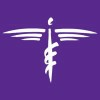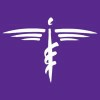Kim Tran, M.D., Ph.D., professor and director of the Interdisciplinary Ph.D. in Biomedical Sciences program at Des Moines University Medicine and Health Sciences, has been awarded a $453,000 grant from the National Heart, Lung and Blood Institute of the National Institutes of Health for his research and development of a novel vasorelaxing peptide aimed at enhancing cardiovascular health.
The funding will allow Tran and his team to confirm the mechanisms of this novel peptide, further explore its actions and test its potential clinical benefits, seeking to provide improved therapeutic options for patients suffering from hypertension and other cardiovascular conditions.
Nitric oxide is produced in many tissues in the body. Reduced nitric oxide availability is involved in the development of many cardiovascular disorders, such as hypertension, myocardial ischemia and heart failure. Current management of these conditions mainly involve use of drugs that release nitric oxide. However, patients often rapidly develop tolerance to these drugs, diminishing their effectiveness. In addition, these drugs may cause dysfunction of the endothelium, the very cells that produce endogenous nitric oxide.
“Many vasorelaxing drugs exist that act via different mechanisms, all targeting the vascular smooth muscle layer of blood vessels. This peptide represents a completely novel approach,” Tran says. “It represents a new way to promote the endogenous production of nitric oxide.” Endogenous nitric oxide production means the natural production of nitric oxide from the endothelium, which is ideal to avoid issues with tolerance and inefficacy.
The three-year grant will fund a series of studies that Tran and his collaborators from the Department of Physiology and Pharmacology at DMU, Sarah Clayton, Ph.D., Eric Wauson, Ph.D. and Daniel Christian, Ph.D., will carry out.
“You must test an idea in many different ways so that all roads lead to Rome,” Tran explains. “That’s why one hypothesis may require collaborators who can work in one or more paradigms. That’s how we work as a team.”
In addition to advancing scientific understanding and clinical applications, Tran’s research will offer invaluable training opportunities for DMU graduate and medical students.


